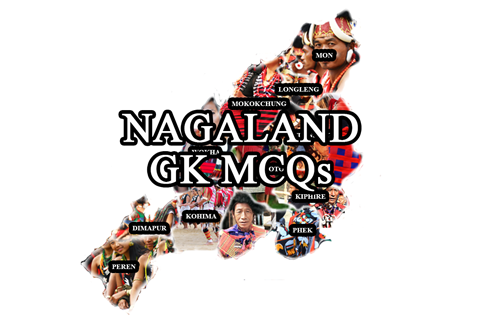The Naga-Akbar Hydari Accord, 1947
The 9-point accord was signed between the then Governor of Assam, Akbar Hydari and the representatives of the Naga National Council at Kohima after three days of deliberation
Tribes Represented at Discussions on the 26th, 27th and 28th June, 1947 at Kohima
Western Angamis
Eastern Angamis
Kukis
Kacha Nagas (Mzemi)
Rengmas
Semas
Lothas
Aos
Sangtams
Changs.
Heads of Proposed Understanding:
That the right of the Nagas to develop themselves according to their freely expressed wishes is recognized.
1. Judicial – All cases whether civil or criminal arising between Nagas in the Naga Hills will be disposed of by duly constituted Naga Courts according to Naga customary law or such law as may be introduced with the consent of duly recognized Naga representative organizations: save that where a sentence of transportation or death has been passed there will be a right of appeal to the Governor.
In cases arising between Nagas and non-Nagas in (a) Kohima and Mokokchung town areas, and (b) in the neighbouring plains districts, the judge if not a Naga will be assisted by a Naga assessor.
2. Executive – The general principle is accepted that what the Naga Council is prepared to pay for, the Naga Council should control. This principle will apply equally to the work done as well as the staff employed.
While the District Officer will be appointed at the discretion of the Governor, Subdivisions of the Naga Hills should be administered by a Subdivisional Council with a full time executive President paid by Naga Council who would be responsible to the District Officer for all matters falling within the latter’s responsibility, and to the Naga Council for all matters falling within their responsibility.
In regard to: (a) Agriculture – the Naga Council will exercise all the powers now vested in the District Officer.
(b) C.W.D. – The Naga Council would take over full control.
(c) Education and Forest Department – The Naga Council is prepared to pay for all the services and staff.
3. Legislative – That no laws passed by the Provincial or Central Legislature which would materially affect the terms of this agreement or the religious practices of the Nagas shall have legal force in the Naga Hills without the consent of the Naga Council. In cases of dispute as to whether any law did so affect this agreement the matter would be referred by the Naga Council to the Governor who would then direct that the law in question should not have legal force in the Naga Hills pending the decision of the Central Government.
4. Land – That land with all its resources in the Naga Hills should not be alienated to a non-Naga without the consent of the Naga Council.
5. Taxation – That the Naga Council will be responsible for the imposition, collection, and expenditure of land revenue and house tax and of such other taxes as may be imposed by the Naga Council.
6. Boundaries – That present administrative divisions should be modified so as (1) to bring back into the Naga Hills District all the forests transferred to the Sibsagar and Nowgong Districts in the past, and (2) to bring under one unified administrative unit as far as possible all Nagas. All the areas so included would be within the scope of the present proposed agreement. No areas should be transferred out of the Naga Hills without the consent of the Naga Council.
7. Arms Act – The Deputy Commissioner will act on the advice of the Naga Council in accordance with the provisions of the Arms Act.
8. Regulations – The Chin Hills regulations and the Bengal Eastern Frontier Regulations will remain in force.
9. Period of Agreement – The Governor of Assam as the Agent of the Government of the Indian Union will have a special responsibility for a period of 10 years to ensure the observance of the agreement, at the end of this period the Naga Council will be asked whether they require the above agreement to be extended for a further period or a new agreement regarding the future of Naga people arrived at.
Source: South Asia Terrorism Portal – http://www.satp.org/satporgtp/countries/india/states/nagaland/documents/papers/nagaland_9point.htm



Leave a Comment (FB)